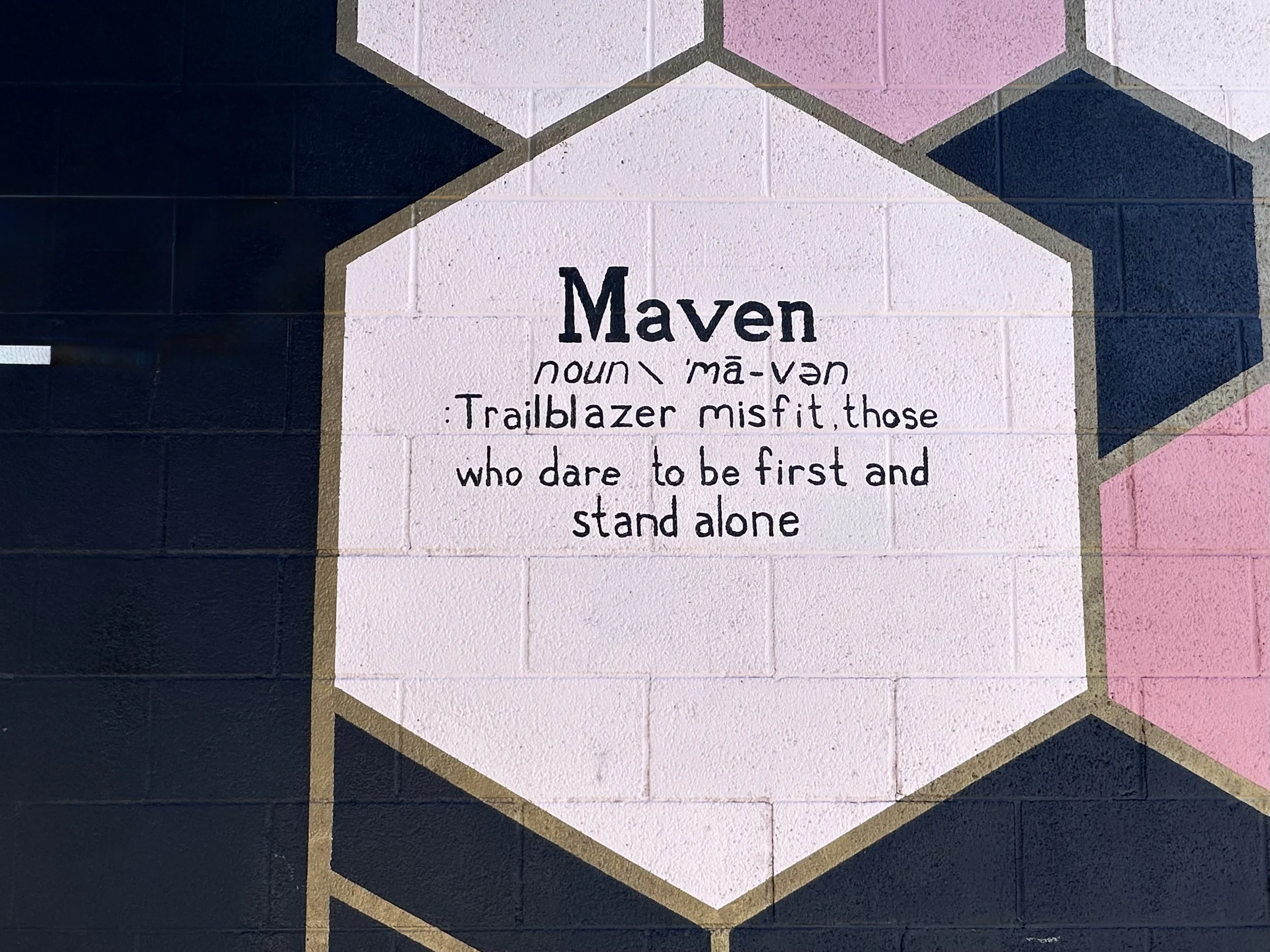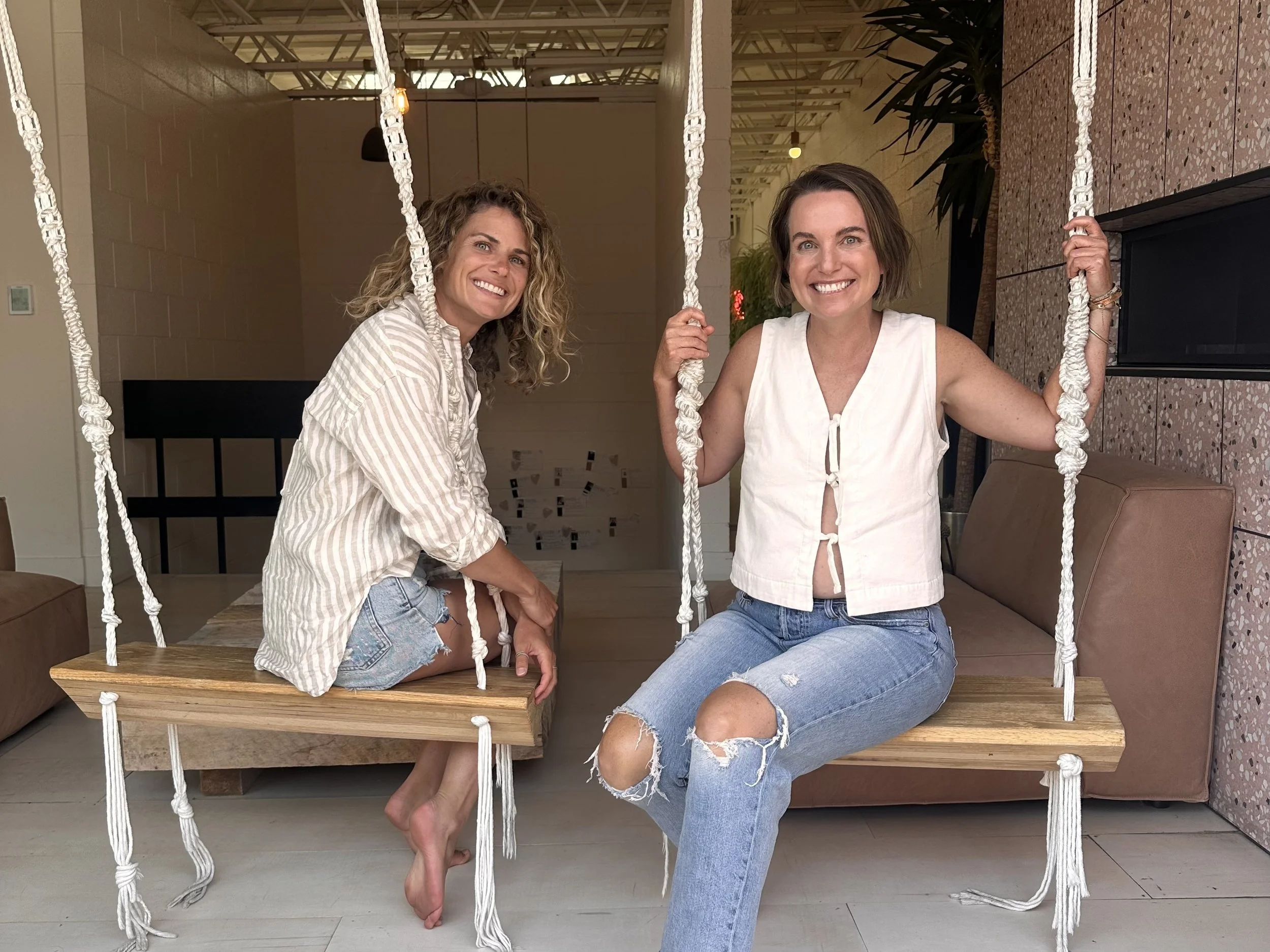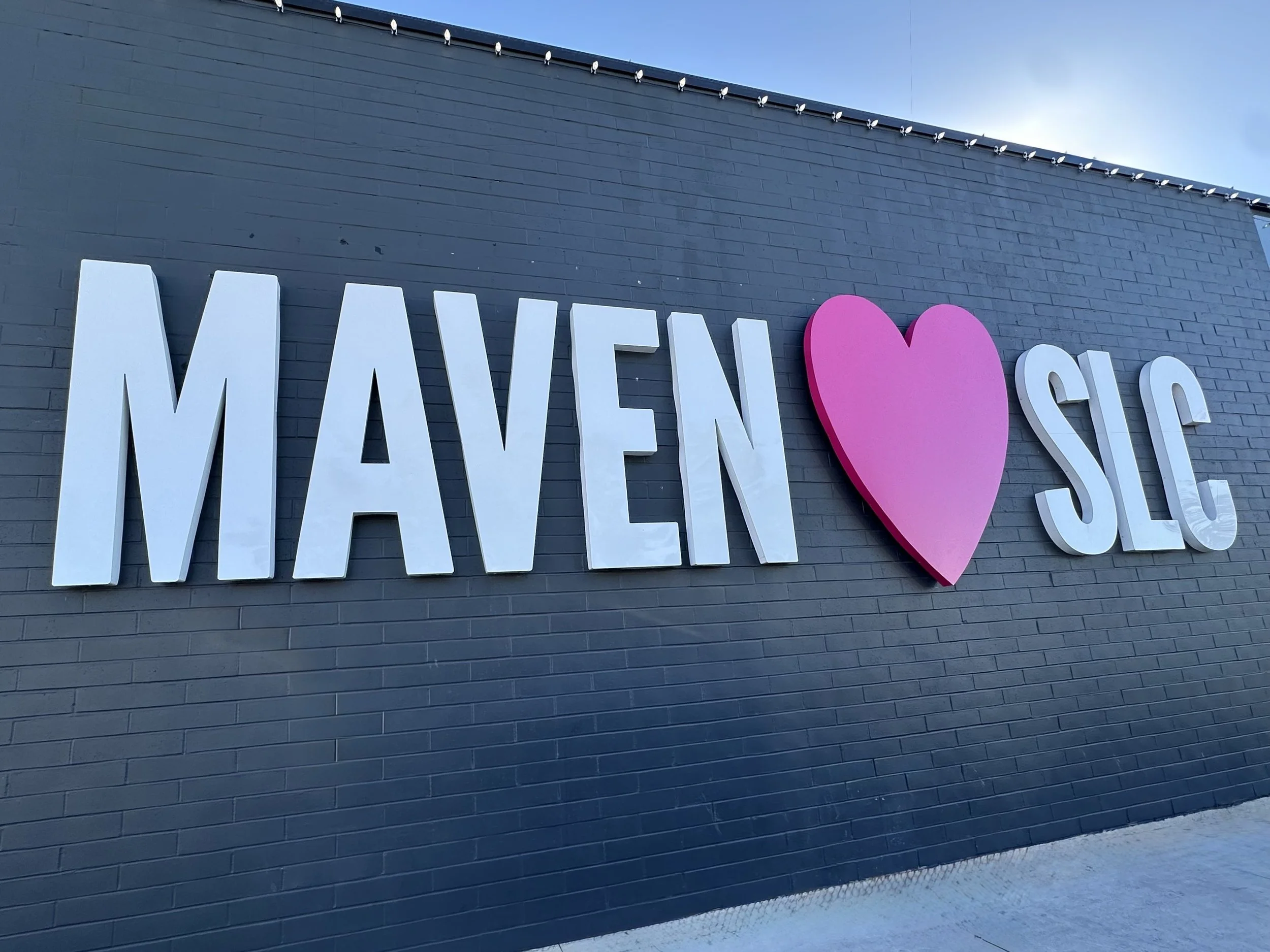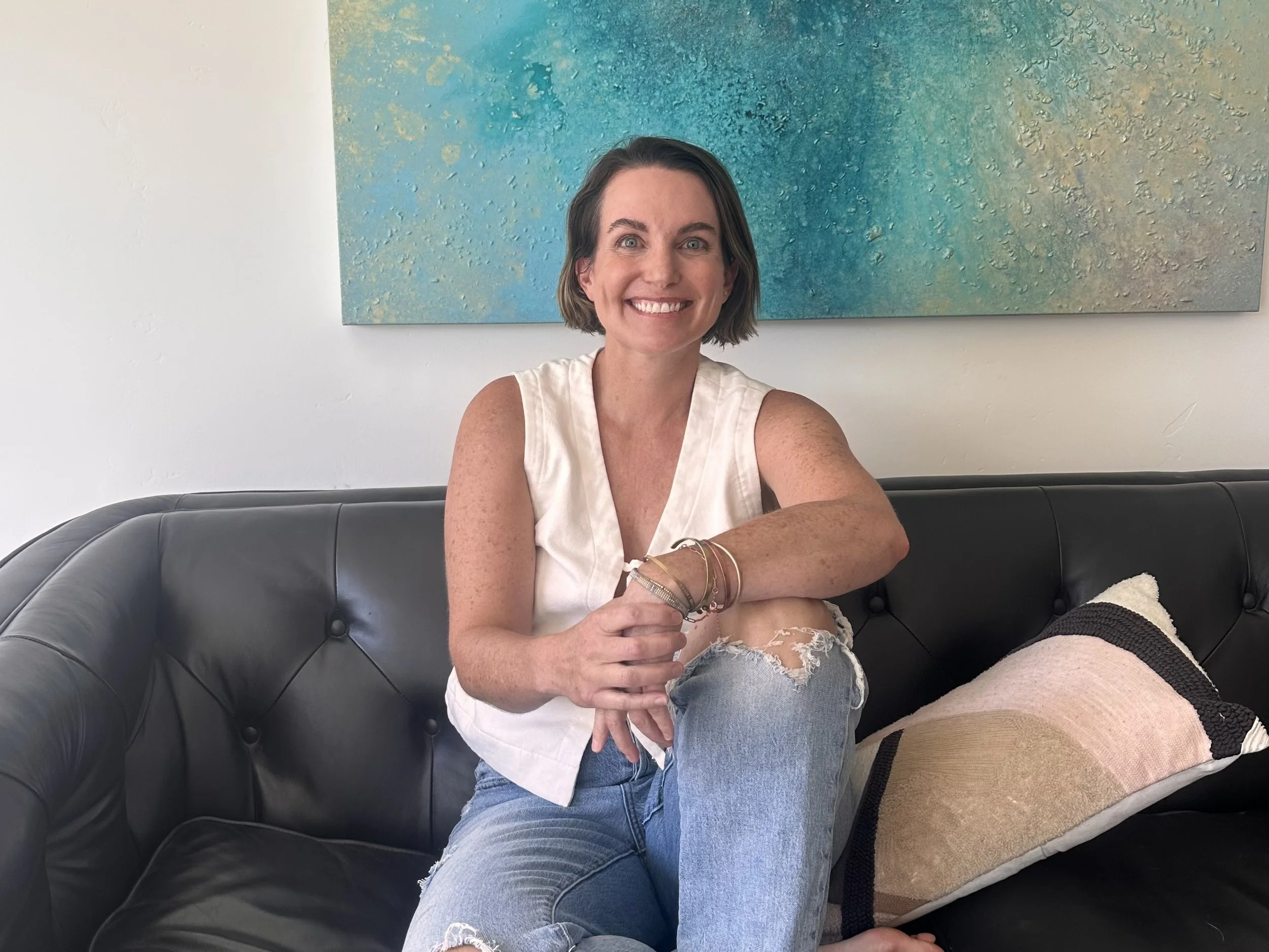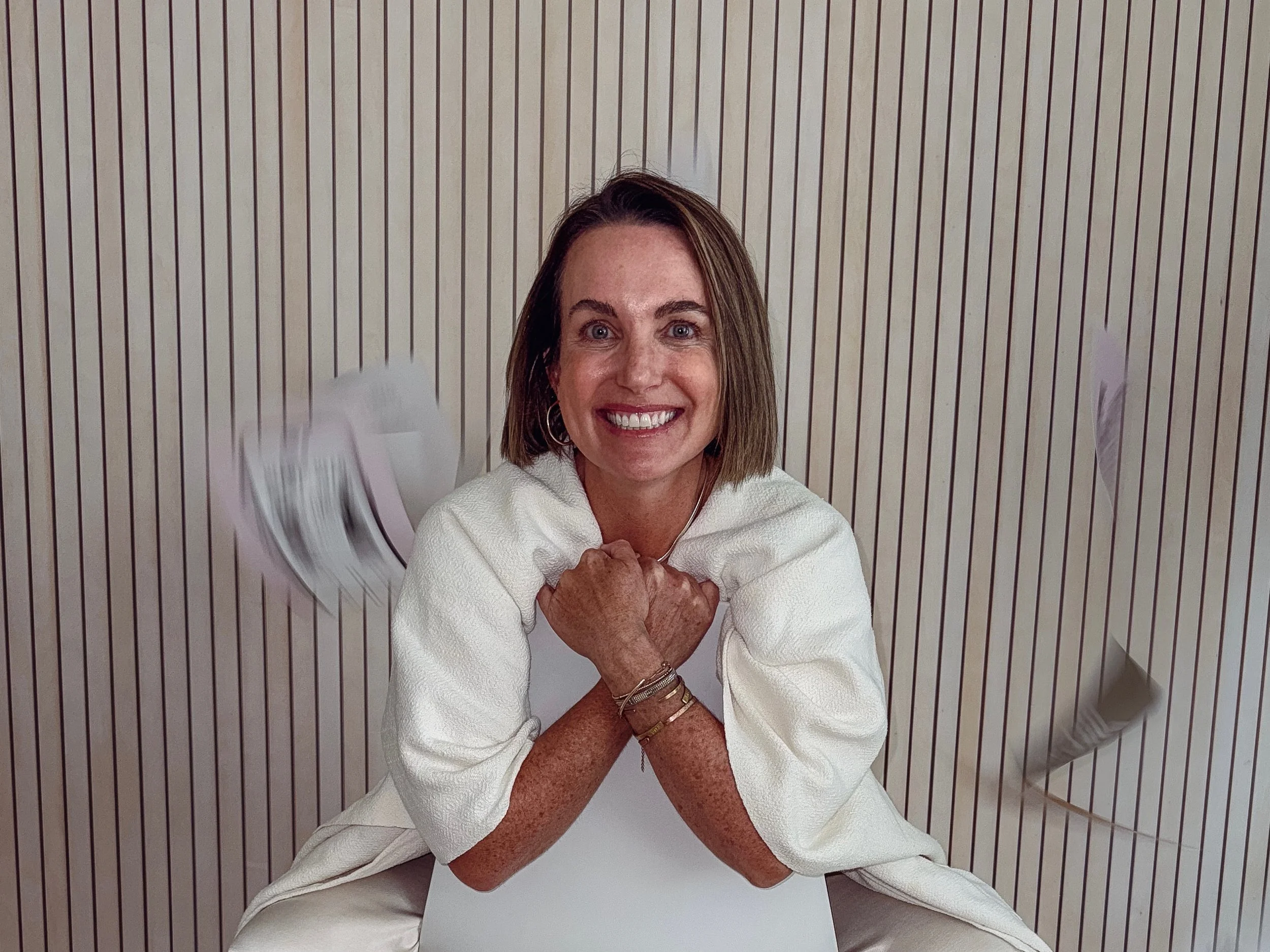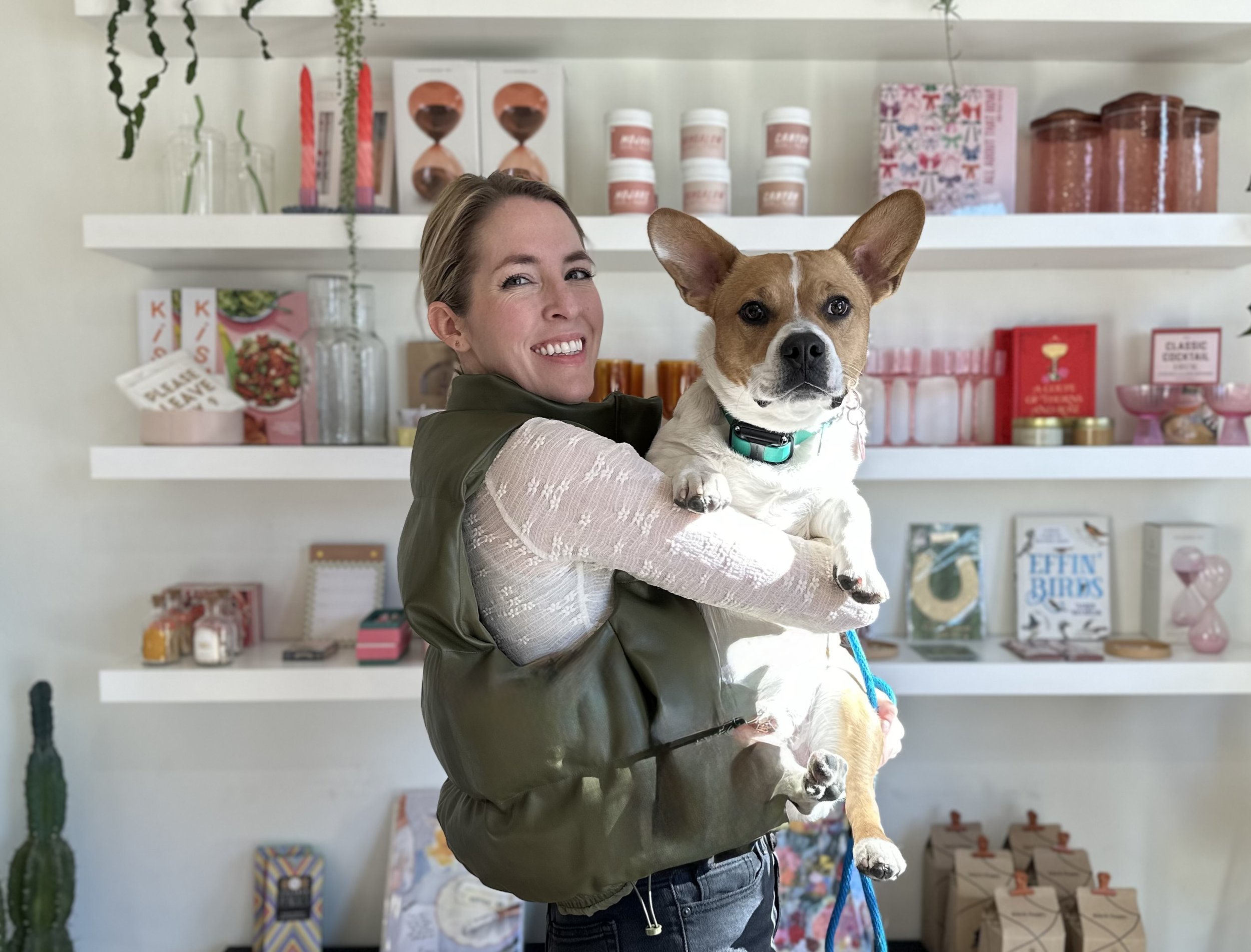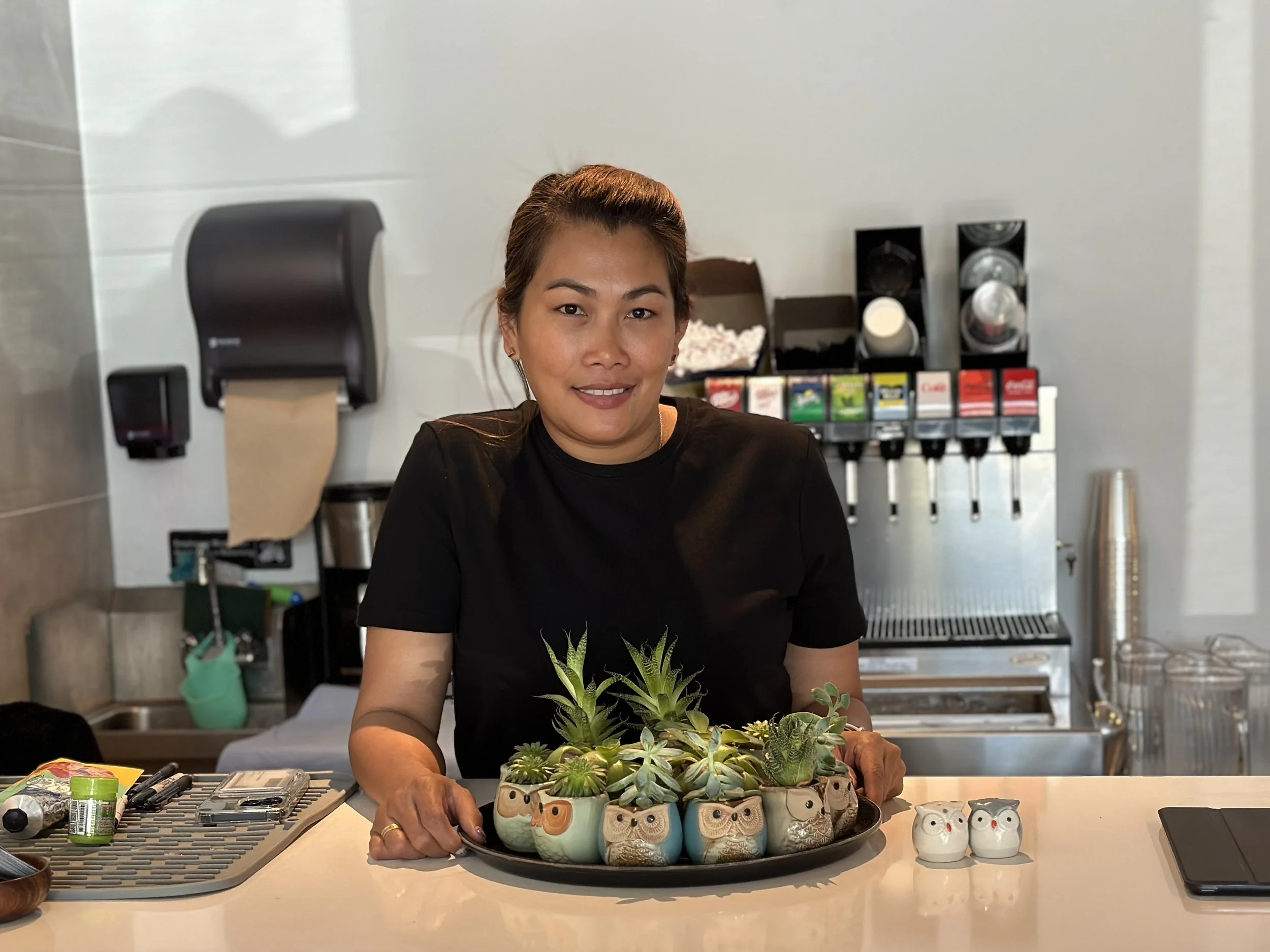Maven
"I have always felt like I should have been able to do it on my own, but maybe the point is, we never really do anything alone.” Tessa Arneson did not set out to become a developer. She was not following a blueprint or checking off the next logical step in her career.
Tessa grew up in Utah and left for college at St. Lawrence University in upstate New York. But after graduation, she found herself back in Utah in 2004 and never left. “I finished college a semester before my friends and wanted to ski for a season, as many people do. They say they come back for the mountains, and maybe they stay for the mountains, but I loved that it was an easy thing to stay for the accessibility to the outdoors. I had lived in LA, Boston, New York, and London, and I hated to drive just to recreate. Anytime I have downtime, I want to spend it outside. And then I fell in love with Utah in a new way when I came back. I saw it through a different lens.”
Like many in their early twenties, Tessa was unsure what came next. “I knew I had to get off my parent’s couch and figure out what to do with my life.” Her father, who ran a cabinet manufacturing firm, offered her a job, recognizing something in her before she even recognized it in herself. “You have always been able to see spaces,” he told her. “It got me started on my love of design that I feel will probably never go away.”
Cabinetry was the backbone of the high-end homes her father’s company built. It was a discipline of precision, where every detail mattered. “Cabinetry integrates with every single sub on-site, really,” Tessa said. “I learned a lot about construction there, a lot about detailed work, how spaces make you feel, how they need to function, and what you can sacrifice in functionality versus making something beautiful - and how to mesh the two.”
Tessa remained in her dad's company for ten years, focusing on expensive homes in Park City. But eventually, she realized it was not going to be her life's work. “It wasn't my path to take over the family business. I was not interested in just creating luxury. I wanted to build something meaningful.” The ability to see - to look at a space and understand its potential - was something she could not shake. Thus, she pivoted, working in marketing and film, drawn to the way brands told their stories. Still, she was restless, searching for something that felt like hers. Then, almost by accident, it appeared.
In 2013, a Pilates studio was up for sale. The owner, knowing Tessa’s creative drive, asked if she wanted to buy it. For weeks, Tessa never said a word to anyone, afraid the idea was not serious enough. But she could not stop thinking about it. One night, unable to sleep, she finally told her husband, Tim. “I want to buy this studio,” she whispered in the dark. He did not dismiss it. Instead, without missing a beat, he responded, “Let’s take a look at the numbers.” And together, they realized it made sense.
What did not sit right with Tessa, however, was how she had to finance it. She needed her husband’s backing to secure the purchase. “My husband is freaking lovely, and he has been my biggest supporter and investor along the way. But I always felt stupid for that, which is stupid. It is this archaic thing of men having access to money that women do not, or even just a lack of being bankable. It is sexism in the banking world, and even now, I feel ashamed because I still cannot get a bank loan without him attached, even though we own all of this together.”
Tessa went on to run the Pilates studio for four years, watching the organic way community formed within its walls. People asked each other where to go for physical therapy, where to shop locally, where to get their brows done. It struck her - what if there was a way to formalize that network? That was the moment Maven was born.
Building a Vision, Brick by Brick
Maven was never meant to be a district in the traditional sense. It was not about a collection of storefronts or a block of retail spaces. It was about curating a community that prioritized connection. When Tessa and Tim started acquiring buildings, it was with the idea that businesses could grow exponentially by sharing resources, collaborating, and feeding into each other’s success.
It was fun and exciting for Tessa. In 2015, when she was nine months pregnant, they knocked down their first commercial building. “I have a cool picture of me standing on top of the rubble, pregnant, thinking, ‘Here we go. Let’s do this.’ It was a wild, hard, scary time - becoming parents but also birthing a brand. This idea was in our little hearts, but I did not know what it would be like once the doors opened.” She wondered if people would think this was a “stupid” idea, or would they love it? Then it started getting traction, and almost all of the tenants were women.
“The building we are sitting in now on 900 South, Maven CREATE, was once an H&R Block with low ceilings, small windows, and a lingering scent of old carpet. Later, it became a call center, a relic of the ’80s, filled with outdated computers. When I first walked in, I thought, ‘Raise the roof, bring in the light. This could be beautiful.’” Tessa and her crew then took what was once a one-story space and transformed it into a four-story building, Maven STAY, an adaptive reuse project that retained the soul of the original structure. "That is what excites me most - taking something with history and reimagining it for what comes next.”
It was a friend, Jody Jones, a local realtor, who knocked on doors and helped Tessa and her husband purchase the buildings one by one, creating the foundation for Maven. What made Maven different at the outset - when they officially opened in 2017 - was its flexibility. “We want Maven to be accessible for people, primarily women, to start businesses in a way that is easy and doable, whether it is a lease that they could comprehend, less expensive rent, or just a jumping-off point - and also for them to be able to exit if they decided that retail wasn't for them.”
Empowering Women—From Within
Tessa had long felt the pull to create something that empowered women. But that drive was not abstract - it was forged in anguish.
“At sixteen, I was paid a dollar less than the boys,” she said. “I was better than all of them - my sales were higher - but when I asked for equal pay, they gave me a quarter raise.” It was her first real experience with injustice. “That moment showed me: we are not equal. Not yet.”
At age seventeen, her sense of power and self-worth was shattered in an experience she could not even name at first. Alone, Tessa carried the weight of her sexual assault, trying to push forward. “It became a battle of worthlessness - clawing my way back to find an identity beyond being broken,” she said. “I was filled with puddles of shame and powerlessness. My little teenage brain wanted to die.”
Tessa did not tell many people at first. When a medical bill exposed the situation to her family, the response was not what she had hoped for. “I was met with judgment when I needed compassion. That moment could have broken me entirely,” she reflected. But over time, it lit a fire inside of her - a belief that no one should have to feel that alone, that ashamed, or that powerless. This became the foundation for everything she went on to build.
Tessa was dealing with the trauma that she had experienced on her own until she arrived at college. Here, she began a new journey. She went to the campus counseling office, spoke her truth, and slowly began to rebuild. “That was when I learned how powerful it is to name your pain.” In time, she became a student advocate for others who had gone through difficult experiences. Her name and number were posted in bathroom stalls - someone others could call when they needed to feel less alone. “When you share your hardest moments instead of covering them in shame, you give other people strength,” she said. “That’s how connection begins.”
That spirit of connection is what Tessa has infused into Maven. Her personal story is woven in at every level. “We get to a different rung on the ladder, and we turn around and help another woman up,” she explained. “That’s the essence of what we are trying to build here.” Maven is more than a creative district. It is a culture - a place where people are invited to bring all of themselves. “We want the whole picture of a person baked into us. Even the messy, hidden parts. Especially the messy parts.” Tessa believes vulnerability is not weakness, but power. “It’s a quick bridge to trust. When someone shares a deep emotional story, a level of respect and empathy is built immediately. And that allows others to feel less alone.”
Tessa hopes the environment she and her team have created will allow others to live more fully than she was able to at their age. “I hope my young team is already set up to live this way - because the world is a little louder now, a little more open than it used to be. And they chose to be in this environment. They knew what Maven stood for.”
Tessa speaks often of a “deeper well for love,” something she has cultivated through pain, healing, and years of reflection. “If we can share little pieces of our real selves, there will be less hate, more love, and more women empowered to do life how they want to.” For her, it all comes back to the same core truth. “How do you build wealth, self-worth, understanding?” she asked. “You start by saying: You are not alone. Your story matters. And you get to build something beautiful from here.”
“That is why I fight so hard,” Tessa said. “That is why I use pink throughout our spaces, and even paint buildings pink. I am saying it loud because women have been told to be quiet for too long. I want my daughters to live in a world where they know their worth from day one. Where they never have to claw their way back.”
Rocky Donati: The Missing Piece
Rocky Donati saw further potential for Maven. Originally from Southern California, she had spent a decade in San Francisco chasing a dream - becoming the CEO of a Fortune 500 company. She was determined, ambitious, and ready to break through every glass ceiling.
She met her husband in a calculus class in college. “I like to say I was better at math, but he might tell you differently,” she laughed. They became partners not just in life but in business, launching a company together in San Francisco. “We were moving fast, insanely fast. It was nonstop growth, and I thought that was what I wanted.”
For years, Rocky thrived in the high-pressure world of corporate leadership. Eventually, the exhaustion caught up with her. “I had spent my whole career in male-dominated industries, working twice as hard to prove myself, but at some point, I just thought, ‘what am I doing?’ The stress, the long hours - it was eating me alive.”
One day, Rocky reached a breaking point. She turned to her husband and said, “I am moving. You can come with me if you want.” They had been to Salt Lake City once for an outdoor retail event. That was enough. She needed a change, and nature was calling. She arrived in Utah without a plan. For the first time in years, she gave herself the space to just be. She started taking Pilates classes at Tessa’s studio, and the two women struck up a friendship.
What stood out to Rocky was that Tessa was onto something big, something even Tessa had not fully articulated. “Tessa thought she was just running a Pilates studio,” Rocky said. “But I could see it. She was building a movement without even realizing it.” The more they talked, the more they saw how their visions aligned. “Tessa is all ideas, all creativity, all heart. I am the one who says, ‘Okay, let’s refine it, let’s scale it back, let’s make this sustainable.’ I love that part.”
Rocky understood that Maven was not just about leasing buildings. It was about shifting the entire landscape of Salt Lake City. It was about proving that women could not only start businesses but also own the real estate they operated in. “A lot of the clarity came through Rocky’s brain, not mine,” Tessa admitted. “I would still be running around in circles, doing a lot of different cool community projects that I love, but she gave us the focus to push ahead, for sure.”
The Rise of Maven
Maven grew. First came Maven Live, integrating residential spaces. Then Maven Create, a co-working space. The most recent addition, Maven Stay, introduced hospitality, inviting people from outside Salt Lake to experience the community firsthand. Many of the businesses that started with Tessa in 2017 remain, including Mineral & Matter, Land of Salt, Normal Ice Cream, and Jed’s Barber Shop.
Rocky’s corporate background allowed her to see how Maven could expand beyond its original vision. They were not just supporting women-owned businesses. They were reshaping the model of real estate investment itself.
“We are peeling back the curtain on financial stability for women,” Rocky said. “Traditional real estate investment often requires massive capital - $50,000, $100,000, half a million dollars. But what if it did not? What if women - entrepreneurs, creatives, dreamers - could start building their wealth now, instead of waiting until they had the ‘right’ amount of money?”
That is when Maven’s next phase began. Instead of turning to institutional investors, they asked women in their network if they wanted to buy into Maven’s buildings. Slowly, women who had never considered themselves real estate investors stepped into that role, building wealth not just through their businesses, but through the property itself.
“We could do it like every other real estate developer - asking, how do I benefit myself? But that is just pointless,” Tessa said. “Every step we take is an attempt to give back. And that is where real growth comes from, whether it is monetary, emotional, or something else. If you are willing to give back, it all grows.” Rocky smiled. “Tessa and I talk about this all the time. You think you can build a community on your own, but you cannot. Connection builds community. And we don’t do anything alone.”
Real estate was the key to their financial independence. Tessa and Rocky want to give other women access to the same opportunity. “I am a ‘girl mom,’ Tessa reveals, and I want the world to be a better place for my daughters. Women’s equality is a big piece of why we do what we do.” Because in the end, it is not just about what they have built. It is about who gets to build it in the years to come.

